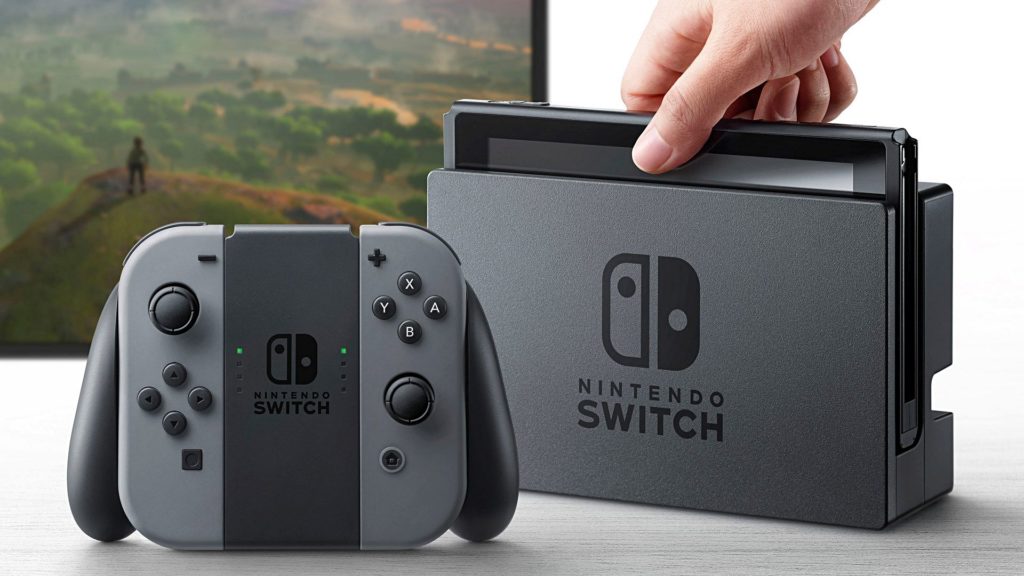Each year, Game Developers Conference (GDC) organizers conduct a survey to highlight some of the major trends in gaming and where the industry is headed. This year, 4,500 industry professionals responded to the State of the Industry Survey and they have some surprising attitudes toward the Nintendo Switch, the mid-cycle console upgrades, and the future of VR.
Based on the survey, mobile and PC gaming lead the way for game development. About 53 percent of respondents stated that they were currently developing games for the PC/Mac, and 38 percent said they were developing mobile games. For the first time, Android development is outpacing Apple’s iOS platform. Around 54 percent of participants said that they were currently making games for the Android platform while 51 percent were creating games for iOS. The State of the Industry survey notes that this is a small but significant shift from the previous year, and the fact that the survey was opened to countries outside of the North America may have impacted the results.
In comparison, 27 percent said they were developing a PlayStation 4 game and 22 percent were developing for Xbox One. These numbers closely match the survey from the previous year, except that a significantly higher number of developers (23 percent) said that they were developing games for VR platforms, outpacing Xbox One development. The previous survey showed that 16 percent of developers were making games for VR—a seven percent change.
High Optimism For Nintendo Switch
Although there is plenty that still needs to be revealed about Nintendo’s upcoming console, respondents are generally optimistic about the Switch’s success. About half believe that it will at least outsell the Wii U in its lifetime. However, given the disappointing sales of the Wii U, that might not be a very high bar for achievement. Fourteen percent didn’t believe that the Switch would outsell the Wii U and 37 percent were unsure.
However, respondents were less sure about the console’s major feature—the ability to change from a home console to a portable one. About 48 percent thought the feature might resonate with the public (although it would not be a world-changing), while only 19 percent gave a definite yes, agreeing that it was the right product for the right time.
HTC Vive Tops VR
Of the three premium VR headsets to release in 2016 (HTC Vive, Oculus Rift, and PlayStation VR), the Vive won out as the most popular platform to develop for despite its high price point. This is tempered by the fact that 61 percent of respondents said that they weren’t developing for VR, but most of those that were favored the Vive. When asked what VR platform they were developing for, 24 percent named the Vive, 23 percent said Oculus Rift and 13 percent said PlayStation VR. The Vive and Oculus Rift may be very close in popularity, but this is a major change from the previous year, which showed 19 percent of respondents developing for the Rift while the Vive and PSVR got 6 percent each.
The HTC Vive also topped the survey in terms of developer interest. When asked which VR platform interested developers most, 45 percent said Vive. About 30 percent of respondents were interested in the Oculus Rift and 29 percent showed interest in the PSVR.
Additionally, the large majority of developers felt that the industry was trending towards mobile VR and AR—specifically augmented reality. When asked which they though would be the dominant platform for VR in five years, PC/consoles or mobile, 33 percent of respondents said mobile while 31 percent went with PC/consoles. Seventeen percent said that the platforms would be about equal in popularity, eight percent said neither would be important, and 12 percent said that they didn’t know.
Looking 20 years into the future, 43 percent of respondents said that AR would surpass VR in popularity. Meanwhile, 21 percent predicted that AR and VR would be about equal, and 19 percent chose VR as the future’s dominant reality technology. Furthermore, 12 percent admitted that they didn’t know and five percent said neither would be important in 20 years.
Developers Unsure About Mid-Cycle Console Upgrades
The PlayStation 4 Pro and Xbox One S both debuted in 2016, and it should be noted that the survey was issued in November—the same month the PS4 Pro released. With that taken into consideration, the survey reveals that developers were unsure whether mid-cycle console updates, including Microsoft’s upcoming super console, Project Scorpio, was good for the industry. Forty-one percent of respondents were undecided, 36 percent said they were neutral on the matter, and 18 percent thought they were good for the industry.
Digital Storefronts Top Promotions
When asked to share what the most effective promotional methods were, a platform’s digital storefront (PlayStation Store, Steam, Xbox Live, etc.) topped responses, with 19 percent of respondents ranking it at #1, followed by community/fan social media, developers’ social media, and traditional press and bloggers.
Twitch streamers ranked last, with only 3 percent of respondents saying that it was the top way to promote their last projects. This statistic remains unchanged from the previous survey, but it’s also important to note that respondents did not rate all the methods because they did not try every form of game promotion.
ESports Still Going Strong
Above all, developers are extremely optimistic about the future of eSports. When asked whether they thought eSports was a sustainable business in the long-term, 90 percent of respondents said yes. That’s a two percent increase from the previous year’s survey.
One respondent wrote: “As long as you have a crowd that is big enough to support it, it will go well. We can see that for many years the interest in eSports is growing. And with more acceptance for video games in social, it could probably go as well as football someday.”

